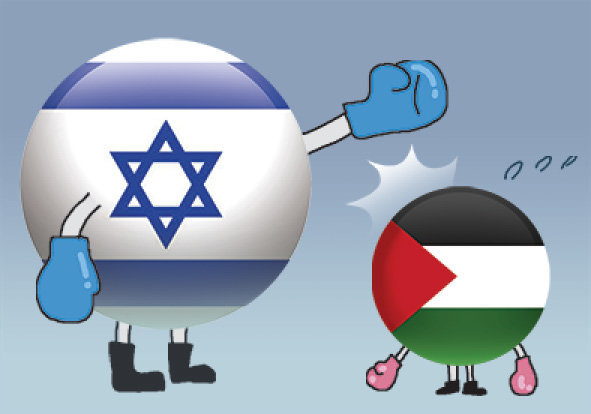The tragedy of the weak
The tragedy of the weak
Posted May. 18, 2021 07:29,
Updated May. 18, 2021 07:29

Conflicts between Israel and Palestine are turning into a war. The first Palestine War broke out the day after Israel’s declaration of independence on May 14, 1948. However, armed conflicts between the two countries have continued since the 1920s. When the Jews began to return to Palestine in the late 19th century, the country was under the rule of the Ottoman Empire. Following the end of World War I, it came under the mandate of the U.K. Palestinians were simple and naïve farmers. They were unaware of what was happening in the outside world, and their movement to build a country began too late. Mohammed Amin Al-Husseini, a well-known leader in the 1930s, traveled to Germany and asked for Adolf Hitler’s help based on the idea that “the enemy of my enemy is my friend.”
At the time of the first Palestine War, Palestine had neither the political leadership nor an organization to maintain national unity. Al-Husseini and his aides were overseas. Israel formed a national defense force by integrating military organizations. Meanwhile, in Palestine, there was no such organization, and even guerrilla militia corps were weak. The first Palestine War was led by the forces of Jordan, Egypt, Syria, Iraq, and Lebanon, as well as the voluntary Arab Liberation Army, under the banner of protecting Palestine. However, nobody truly wanted to help the country; for example, Jordan tried to annex Palestine. It seems that there was no country that wanted Palestine to establish its own.
Meanwhile, Israel pushed out Palestinian residents in the territory and destroyed towns. There were many horrendous acts committed during the time. The memory of destroyed towns was removed. Even now, in Israel, there are hills filled with trees, empty lots near roads, and cemeteries, which were once towns resided by Palestinians. Without looking at old maps, it is hard to find a sign that there were once towns. The violence of the strong should be criticized, but the tragedy of the weak should also be taken as a lesson. It is far more important to not become weak, rather than criticizing from the place of weakness.
Headline News
- Med professors announce intention to leave hospitals starting Thursday
- Bridge honoring Sgt. Moon Jae-sik unveiled in Pennsylvania
- Chief of Staff Chung tells presidential secretaries to stay away from politics
- US FTC bans noncompete agreements
- N. Korea launches cyberattacks on S. Korea's defense companies







